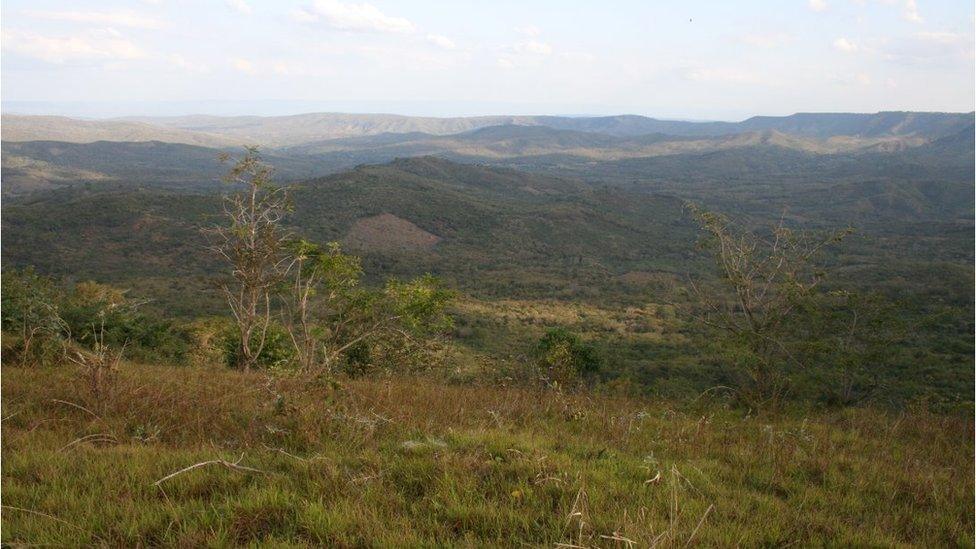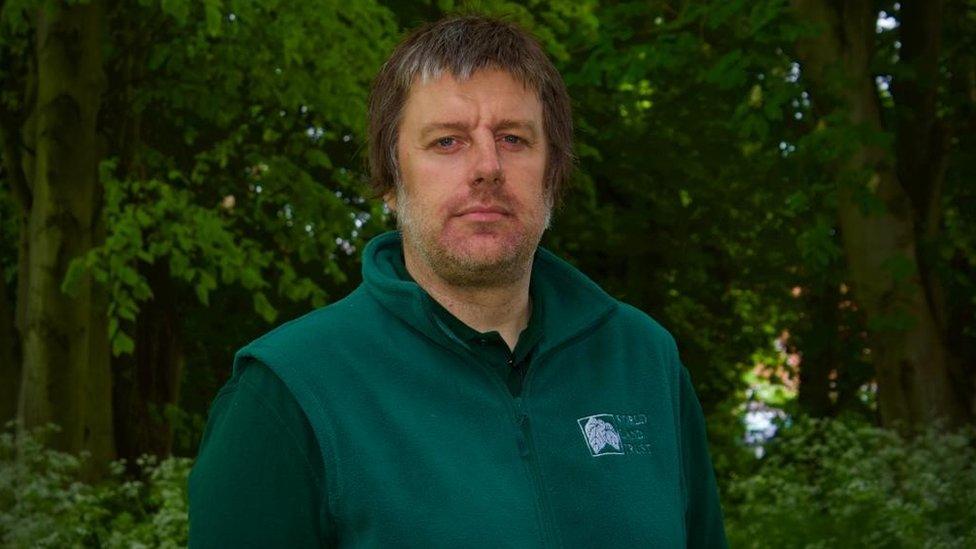Covid-19 pandemic forced a 'wake up' to climate crisis
- Published

The World Land Trust said its latest appeal meant a critical habitat in Tanzania could never be used for commercial farming
A charity which has protected threatened landscapes equivalent in size to Cyprus said Covid-19 had made people wake up to the climate crisis.
The World Land Trust, external (WLT), based in Halesworth, Suffolk, works with partners to secure at-risk habitats.
Its latest campaign, to protect forests in Tanzania, raised an "incredible" £400,000 in five weeks.
"In the past 18 months, people have realised how important landscapes are," said Dan Bradbury, a director at WLT.
"People are waking up - we have a biodiversity crisis and climate crisis, and I think people have seen the link with that and the pandemic.
"Also, during the lockdown, people were heading out into open spaces and hearing the birds sing, and loving being outdoors, and have seen how important landscapes are to them."
The charity was set up in 1989, initially to buy and protect habitats used by migrating birds in Belize, Central America.
From a former shop in Halesworth, it now works with 24 organisations in 34 countries and has helped secure millions of acres, equivalent to the size of Cyprus.

Dan Bradbury said the World Land Trust did not set out to make people feel guilty about the climate crisis
Its projects - including planting two million trees - support communities, enabling local people to protect, manage and maintain the precious landscape on their doorstep.
"Our approach is to inspire, we're making a huge impact around the world - from Central and South America, to Africa, India, Armenia, all the way to Vietnam and Malaysian Borneo," added Mr Bradbury, director of communications and development.
In eastern Tanzania, coastal forests provide a habitat for elephants, lions, the Rondo bushbaby, and an abundance of birdlife.
Allow X content?
This article contains content provided by X. We ask for your permission before anything is loaded, as they may be using cookies and other technologies. You may want to read X’s cookie policy, external and privacy policy, external before accepting. To view this content choose ‘accept and continue’.
But it is vanishing at a "rapid rate" to cashew and sesame farming, with just 10% remaining.
At least 49,000 acres will be protected after WLT's appeal, which smashed its original target of £340,000.
"We are surprised by the response, although we always believe the projects are important and really strong," added Mr Bradbury.
"It's enabling us to create 10 village reserves, managed by local people, and with that extra money we can do more patrolling, more monitoring and give much more protection to this landscape."
The charity's ongoing campaigns include protecting some of the world's oldest rainforests in Malaysian Borneo, where the orangutan population has halved in 20 years.
"We need to save more land, more species, and we will do this acre by acre," added Mr Bradbury.
"It's incredibly important - we're on the cusp of this irreversible climate change and we can't sit and do nothing, we have to do something now.
"If you protect land, it protects everything."

Find BBC News: East of England on Facebook, external, Instagram, external and Twitter, external. If you have a story suggestion email eastofenglandnews@bbc.co.uk, external